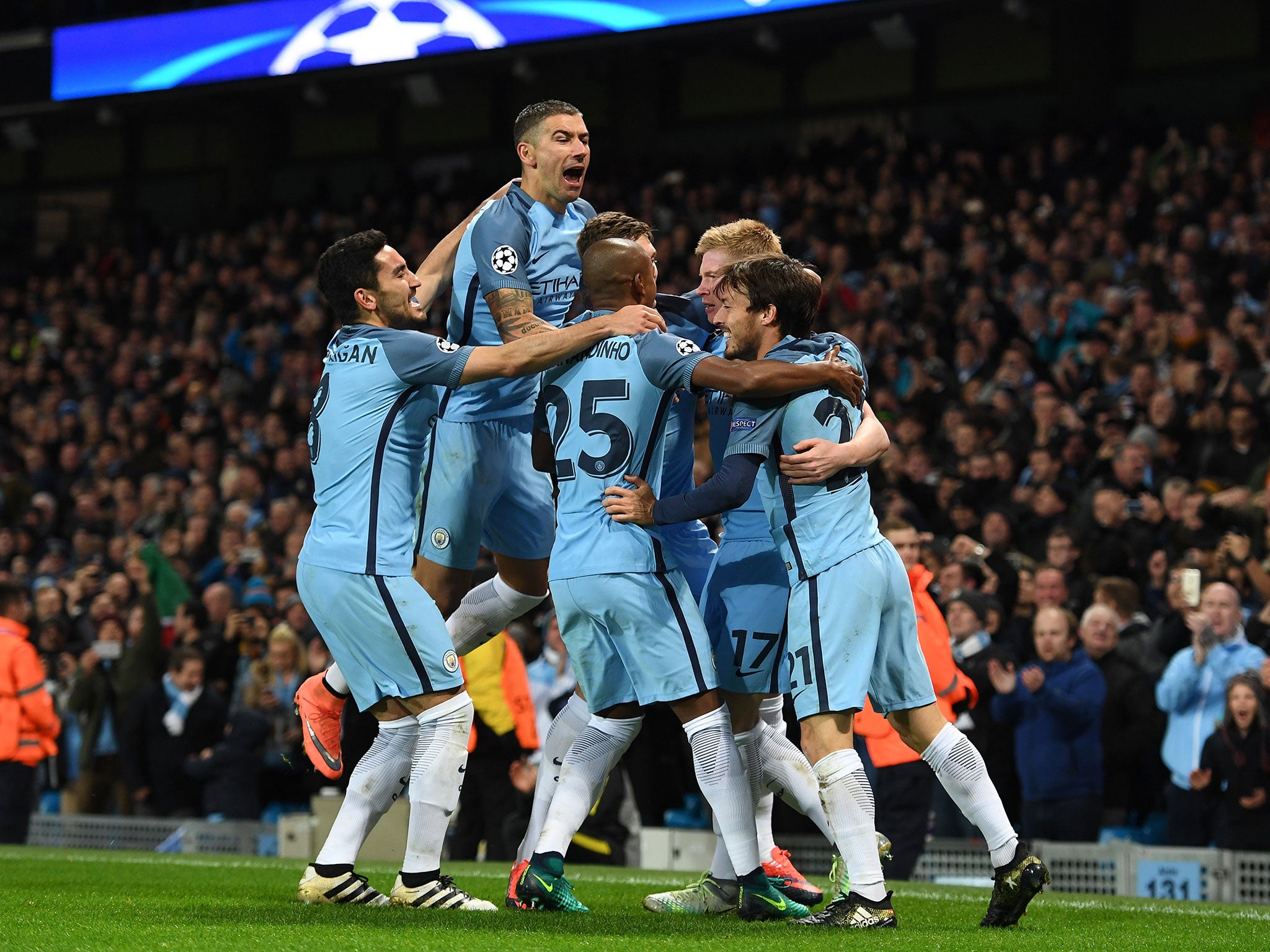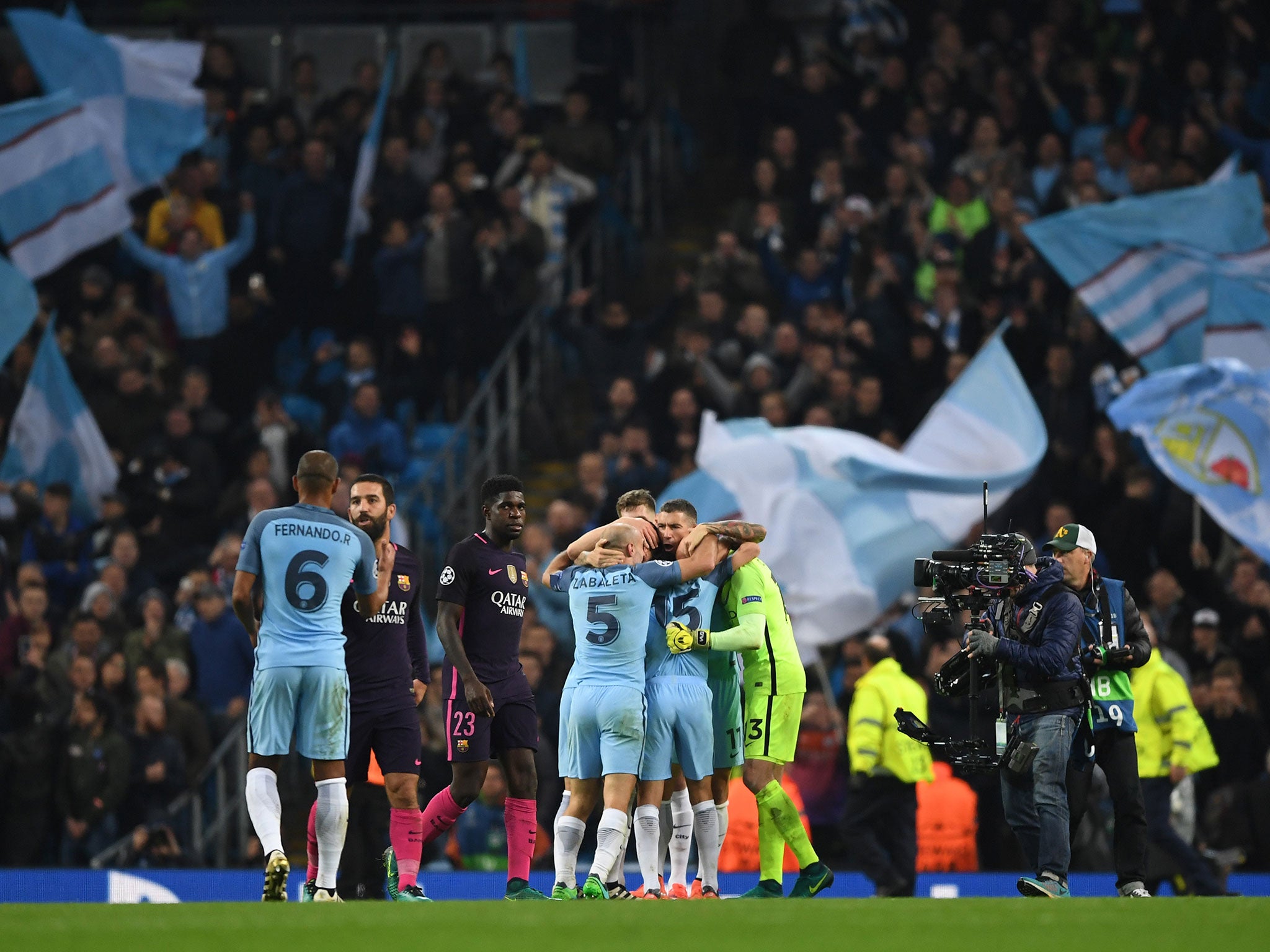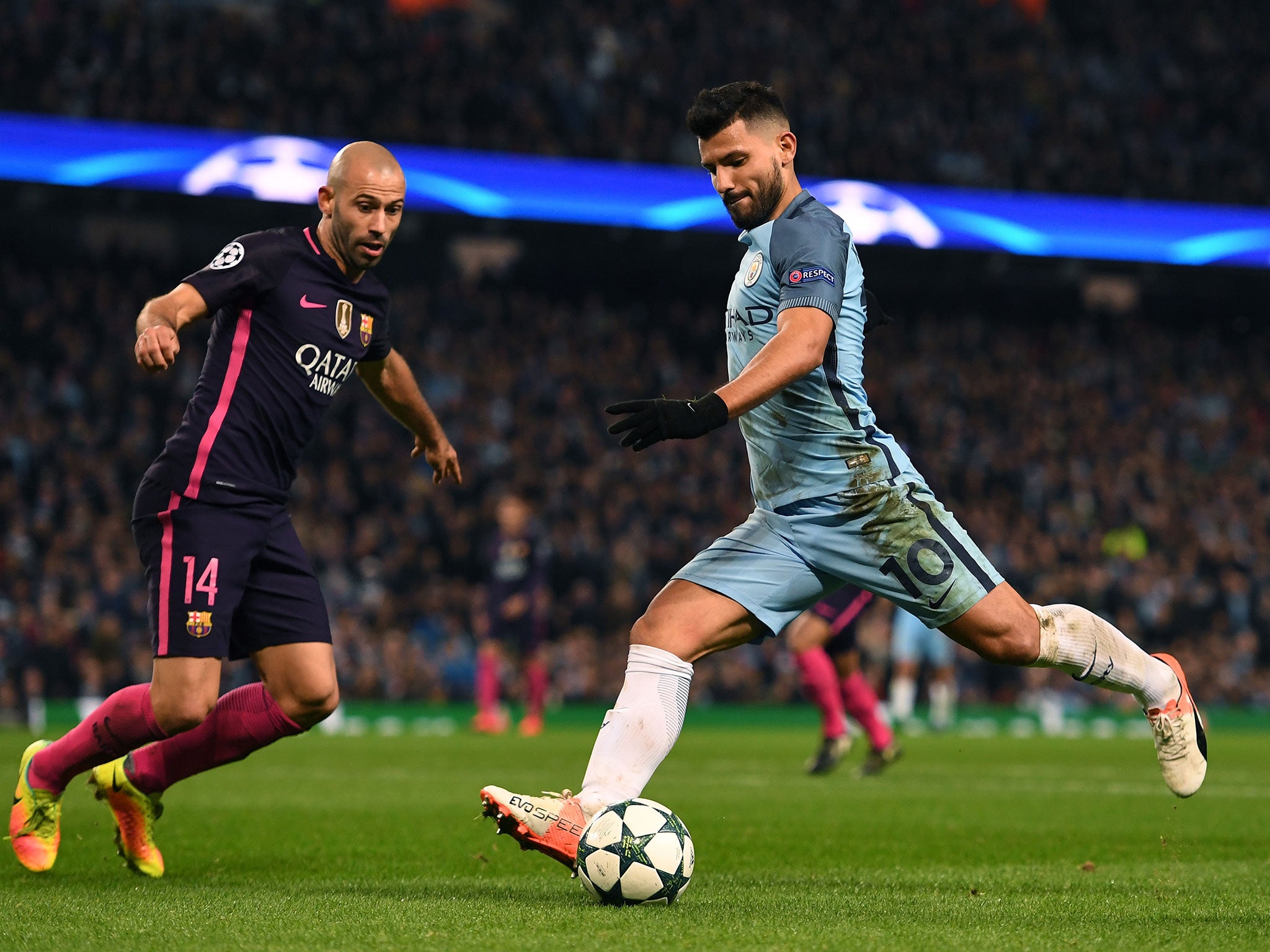After showcasing their true potential, it's time Manchester City forgot the past and started believing in themselves
Under Pep Guardiola's guidance, City demonstrated their potential for European greatness on Tueday night. Now all he needs is a squad, a club and a support base that matches this belief

Your support helps us to tell the story
From reproductive rights to climate change to Big Tech, The Independent is on the ground when the story is developing. Whether it's investigating the financials of Elon Musk's pro-Trump PAC or producing our latest documentary, 'The A Word', which shines a light on the American women fighting for reproductive rights, we know how important it is to parse out the facts from the messaging.
At such a critical moment in US history, we need reporters on the ground. Your donation allows us to keep sending journalists to speak to both sides of the story.
The Independent is trusted by Americans across the entire political spectrum. And unlike many other quality news outlets, we choose not to lock Americans out of our reporting and analysis with paywalls. We believe quality journalism should be available to everyone, paid for by those who can afford it.
Your support makes all the difference.The Spanish contingent putting the questions to Barcelona manager Luis Enrique at his press conference late on Monday night were struggling to comprehend what had happened to the team they referred to as ‘we.’
‘Was it because Gerard Pique was missing?’ ‘Were we over-confident after taking a lead?’ Enrique, who has something of the Pep Guardiola about him, described things as he saw them and would not take refuge in such excuses. “If you lose, it’s not because of the players who are not there,” he said, with mounting exasperation. “I’ve not got an explanation. This is the game where facts change things. Sometimes there are [two teams operating at] different levels. Sometimes it’s not tactical. I could tell you something different but that’s not my way…”
It would have been worth Guardiola having some of his players in the packed press room to hear this external assessment of their performance, because where Europe is concerned there is that perennial sense that they and their supporters don’t really believe it themselves. Manchester City broke a cycle of inferiority with a signature performance on Tuesday night, steeling themselves against the setback of Lionel Messi’s opening goal to end the evening running one of the world’s best sides asunder from every point across their retreating back line. It was a demonstration that City can think of themselves as a side in the bracket of Barcelona or Real Madrid.
The game did have a ‘tactical’ component actually, and a very dynamic one, demonstrating the capacity of both managers to make significant in-game changes; a factor often overlooked in our obsession with whom a club might sign and play from the start. Enrique flipped his centre-backs Javier Mascherano and Samuel Umtiti from their natural positions so they could hit long diagonal passes to deter the press they expected from City down the flanks. Mascherano completed three times more long passes than any other player on the field. That put City in “real trouble,” Guardiola admitted. Sergio Aguero drifted into the wide channels, deterring the Spanish full-backs from advancing to pursue those diagonal passes as much as they wanted.
Guardiola varied the pressing: starting with less of it than Enrique had expected, but in the second half ratcheting up that aspect of City’s game and operating with an extremely high defensive line, as he sought a way back into the game. “They haven’t pressed as much as we thought they would and that meant we could dominate in the first half but the second is a different story,” Enrique reflected.
The long-ball counter-attack - not at all the typical Guardiola - was used to seek out the higher line of midfielders and Sergio Aguero, with Nicolas Otamendi and Aleksandar Kolarov releasing most of the passes from deep. At 3-1 up, City then assumed a “low-block”, dropping deeper, the City manager said after the victory.
Guardiola’s rapid explanations in as-yet imperfect English can be fiendishly difficult to follow but he seemed to suggest that the use of the long-ball counter attack was a way of winning with players not yet steeped enough in his philosophy to win through them alone. “We play[ed] long balls because we are not ready to keep the ball,” he said. “We are three or four months into playing a different way. When the team feel not comfortable in [these] kind[s] of games, we try to play more direct. We try [to play that way] and now we realise we won against [one of] the best team[s].”
He name-checked Sergio Busquets as one of the most difficult to deal with and had clearly dictated that a job must be done on arguably the most dangerous opposition player. Kevin De Bruyne, Ilkay Gundogan and David Silva collectively suffocated Busquets as the game progressed, limiting his vital capacity to dictate the game. UEFA’s passing distribution statistics demonstrated how important that strategy was. Busquets still completed more passes than any other player, bar Umtiti. The Manchester United supporters sneering on Wednesday about City having beaten a side minus Andres Iniesta were overlooking the silencing of this more significant player.
Such was the intelligence of the Guardiola plan. Now all he needs is a squad, a club and a support base that matches his belief in it. The usual excuses about British clubs’ recent struggles in Europe - the intense Premier League competition or lack of a winter break - always frustrate Guardiola when they are put to him. He is adamant that the quality is there and continually hints at a psychological deficit. He said late on Tuesday that this is what City are fighting against.

“We play against us, against our tradition and what we have to do,” he observed. “When one club like Manchester City is 25 years without being in Europe, you don’t have history. History means when you face the big teams you are constant to fight against them…”
He certainly doesn’t seem to see the problems that others might, with his surroundings and inheritance. The only difficulty he has had with Audenshaw, the unprepossessing east Manchester district near the Etihad where he has taken to playing golf, is how to pronounce it. (“Awdenshaw? Odenshaw?” he asked a City colleague a few weeks back.)

Among some supporters there is a spiritual deficit, though. The boos for the UEFA anthem persisted on Tuesday night, despite Guardiola’s bold entreaty of fans that they move on from their feud and “forget what happened in the past,” as he put it back in September. Fans were still taking up their seats a full 20 minutes into the game. The size of the queue for match day tickets just before kick-off suggested that some might be struggling to get in before half-time. It is time for these people to catch the spirit, think big, look at this and say, ‘We are a bright young team managed by one of the brightest individuals in football management and we could win the Champions League.’ As Luis Enrique will tell them, all of the above are true.
Join our commenting forum
Join thought-provoking conversations, follow other Independent readers and see their replies
Comments